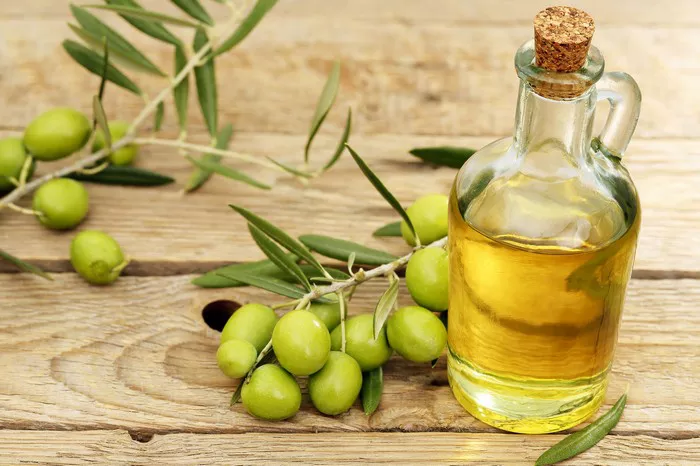Cooking oils are an essential component of our daily culinary activities, playing a crucial role in enhancing flavors and textures while also impacting our health. For individuals managing high blood pressure, choosing the right cooking oil can be a significant decision. In this comprehensive guide, we’ll explore various cooking oils, their effects on blood pressure, and which ones are considered beneficial for those with hypertension.
Understanding High Blood Pressure
High blood pressure, also known as hypertension, is a common condition where the force of blood against the walls of the arteries is consistently high. This condition can lead to serious health issues such as heart disease, stroke, and kidney problems if not managed effectively. Lifestyle factors, including diet, play a crucial role in managing high blood pressure, making the choice of cooking oil an important consideration.
Factors to Consider When Choosing Cooking Oil
Several factors come into play when selecting cooking oil, especially for individuals with high blood pressure. These factors include the oil’s fatty acid composition, smoke point, flavor profile, and potential impact on cholesterol levels. Let’s delve into some of the most commonly used cooking oils and how they fare in terms of high blood pressure management.
Olive Oil:
1. Fatty Acid Composition: Olive oil is rich in monounsaturated fats, which are known for their heart-healthy benefits. These fats can help lower bad cholesterol levels (LDL) and reduce the risk of heart disease.
2. Smoke Point: Extra virgin olive oil has a lower smoke point compared to refined olive oil, making it suitable for low to medium-heat cooking methods.
3. Flavor Profile: Olive oil adds a distinct flavor to dishes, making it ideal for salads, dressings, and light sautéing.
4. Impact on Blood Pressure: Studies suggest that the consumption of olive oil may contribute to lower blood pressure levels, making it a favorable choice for individuals with hypertension.
Avocado Oil:
1. Fatty Acid Composition: Similar to olive oil, avocado oil is high in monounsaturated fats, which are beneficial for heart health.
2. Smoke Point: Avocado oil has a high smoke point, making it suitable for high-heat cooking methods such as frying and grilling.
3. Flavor Profile: Avocado oil has a mild flavor, making it versatile for various cooking techniques.
4. Impact on Blood Pressure: While research specifically on avocado oil and blood pressure is limited, its favorable fatty acid profile suggests potential benefits for those with high blood pressure.
Canola Oil:
1. Fatty Acid Composition: Canola oil is low in saturated fats and high in monounsaturated fats, making it a heart-healthy choice.
2. Smoke Point: Canola oil has a moderately high smoke point, suitable for a wide range of cooking methods.
3. Flavor Profile: Canola oil has a neutral flavor, making it suitable for both cooking and baking.
4. Impact on Blood Pressure: Studies have shown that replacing saturated fats with unsaturated fats, such as those found in canola oil, can help lower blood pressure levels.
Coconut Oil:
1. Fatty Acid Composition: Coconut oil is high in saturated fats, which were previously believed to have negative effects on heart health. However, recent research suggests that not all saturated fats are equal, and coconut oil’s impact on health is still debated.
2. Smoke Point: Coconut oil has a relatively high smoke point, making it suitable for medium-heat cooking methods.
3. Flavor Profile: Coconut oil adds a subtle coconut flavor to dishes, making it popular in Asian and tropical cuisines.
4. Impact on Blood Pressure: The effects of coconut oil on blood pressure are inconclusive, with some studies suggesting potential benefits while others advise moderation due to its saturated fat content.
Sunflower Oil:
1. Fatty Acid Composition: Sunflower oil is high in polyunsaturated fats, particularly omega-6 fatty acids. While these fats are essential, an imbalance between omega-6 and omega-3 fatty acids may contribute to inflammation and cardiovascular issues.
2. Smoke Point: Sunflower oil has a high smoke point, making it suitable for frying and high-heat cooking.
3. Flavor Profile: Sunflower oil has a neutral flavor, making it versatile for various cooking applications.
4. Impact on Blood Pressure: The impact of sunflower oil on blood pressure is not well-studied, and its high omega-6 content raises concerns about its long-term effects on cardiovascular health.
Conclusion
In conclusion, when choosing cooking oil for high blood pressure management, opt for oils high in monounsaturated fats such as olive oil, avocado oil, and canola oil. These oils have been linked to improved heart health and may help lower blood pressure levels when consumed as part of a balanced diet. While oils like coconut oil and sunflower oil have their merits, they should be used in moderation and as part of a varied oil intake to ensure a well-rounded approach to heart health. Consulting with a healthcare professional or nutritionist can provide personalized recommendations based on individual health needs and preferences.

